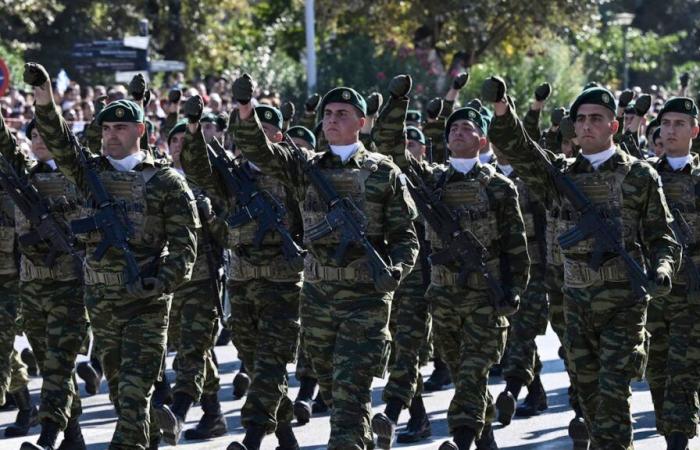The conflicts of the 21st century are fought using cybertechnologies. Greece intends to get up to speed. The country announced on Thursday that it would reorganize its defense with a focus on the introduction of drone systems and strengthen its cyberwarfare capabilities after lessons learned from the war in Ukraine.
Greece must face a “different reality” and “rapidly” modernize its forces to meet the demands of the 21st century, Defense Minister Nikos Dendias told the parliamentary defense committee.
The army will introduce four different drone systems, merge army units and set aside old weapons, according to the minister. “Every unit in the Army will have drone combat capabilities,” he said.
In order to save funds, more than 130 military barracks will be eliminated by next year, said Nikos Dendias, recalling that the country has more than 800 military camps, “more than the United States”.
The spokesperson for the Greek government, Pavlos Marinakis, estimated during a press briefing that the reorganization of the army would be “the most important ever undertaken in the history of the Greek state in terms of national defense”.
Nikos Dendias also indicated that Greek frigates would now be equipped with a Greek-made anti-drone system, which has already been used against Houthi rebels in the Red Sea.
In April, the minister declared on private television Skaï that his country should be protected by an anti-aircraft system and should move towards the creation of an “anti-drone dome”, like neighboring Turkey. The Turkish government indicated last month that its defense industries were considering the construction of an “iron dome”, an anti-missile defense system like the one that protects Israel.
A member of NATO and with around 10.5 million inhabitants, Greece spends almost 3% of its gross domestic product (GDP) on defense, one of the highest rates among its European partners, citing tensions with its historic rival, Turkey, also a member of the Atlantic Alliance.






